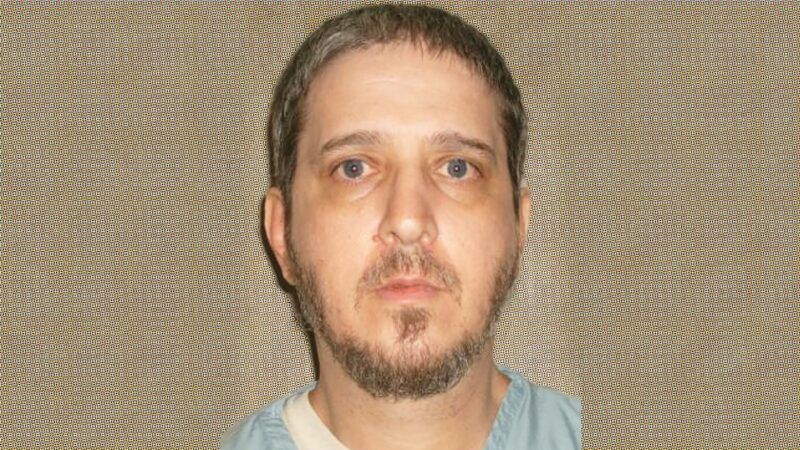Oklahoma Starts Planning Executions for 25 Death Row Inmates, Including Richard Glossip
A federal judge rules against effort to stop use of three-drug cocktail.

Oklahoma Attorney General John O'Connor is asking the state to schedule executions of 25 prisoners on death row.
Executions in Oklahoma had been suspended temporarily as death row inmates fought the state's method of execution—a lethal injection of three drugs. One of the drugs, midazolam, is supposed to serve as a sedative that would render the prisoner unable to feel the pain as potassium chloride stops the heart. The death row inmates and their attorneys argued that midazolam has shown to be insufficient to dull the pain and executing prisoners with these drugs amounts to unconstitutional cruel and unusual punishment.
But last week a federal judge ruled against the inmates and determined the three-drug cocktail is a constitutional method of execution. On Friday, O'Connor submitted 25 filings with the Oklahoma Court of Criminal Appeals to try to set 25 dates for executions of inmates. Oklahoma currently has 43 inmates on death row.
According to the Associated Press, O'Connor is requesting the first execution no earlier than August 25 and then a four-week interval between each execution to account for the state's clemency process, so these executions would take place across the next two years. First up would be James Coddington, who would have been executed in March were it not for the aforementioned lawsuit.
Second on the list would be Richard Glossip, who was the lead plaintiff of the aforementioned lawsuit. Glossip was very nearly executed in 2015, but prison officials realized that they had received the wrong drug. Oklahoma officials later realized that they had actually executed a prisoner previously with the wrong drug and all executions were put on hold until last year.
Glossip has been Oklahoma's highest-profile death row inmate because he is plausibly innocent and the details of his case have brought celebrities, activists, and bipartisan calls for mercy. Glossip was originally convicted in 1997 of the murder of Barry Van Treese. Glossip did not actually kill Van Treese directly, but he was convicted of allegedly convincing Justin Sneed to do the deed in exchange for money and the prospect of managing a motel. Sneed cooperated with police and confessed to avoid death row himself. Jurors were not shown footage of police interrogating Sneed and encouraging him to implicate Glossip to save himself.
Glossip's team has evidence and witnesses and experts have come forward to say that Glossip was not involved in this murder. They say instead that it was a robbery gone wrong by Sneed. But despite all the evidence, Glossip has exhausted his appeals.
The evidence in the Glossip case was enough to get 28 Republican and six Democratic Oklahoma lawmakers to send a bipartisan letter to the Gov. Kevin Stitt to ask for a review of Glossip's case. Glossip's attorney, Don Knight, put out a statement urging the state to not execute him while the case is still being reviewed.
"Those findings could reveal exculpatory information previously unknown until this point," Knight wrote. "Until everyone has the opportunity to examine the final report, the attorney general has a moral duty to delay the execution of Richard Glossip. No matter where people stand on the death penalty, no one should want to kill an innocent man. The stakes are too high to rush this process. A man's life is on the line."
Oklahoma has had four executions since restarting them in 2021, but Stitt did deliver mercy to a death row inmate where there were questions of actual guilt. In November, Stitt commuted the death sentence of Julius Jones, just hours before he was scheduled to be executed for the murder of a man killed in a carjacking in 1999. As with Glossip's case, several Republican lawmakers came forward with concerns about Jones' guilt, and the Oklahoma Pardon and Parole Board agreed and voted 3-1 that there were enough concerns about his guilt to commute his sentence.
It's already settled fact that Glossip didn't actually kill anybody. There's also evidence that Sneed pointed to Glossip to save his own hide. We may see within the next couple of months whether this information is enough to save Glossip from lethal injection.

Show Comments (80)